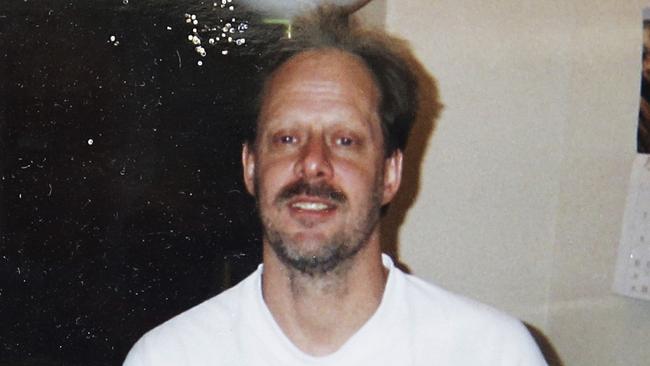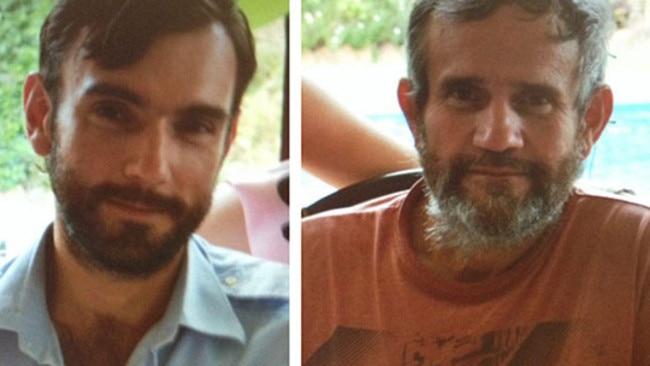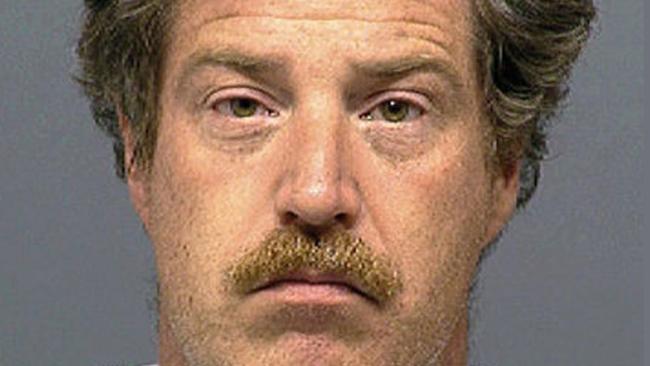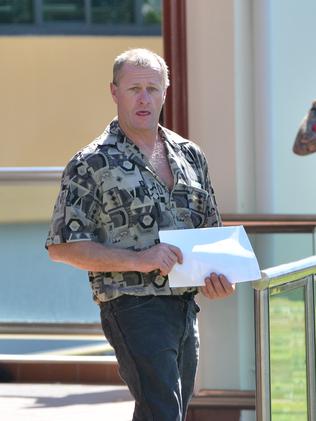Why did Stephen Paddock follow in the bloody footsteps of his father?
WAS mass murderer Stephen Paddock a chip off the old block? Some experts in criminal behaviour believe genetics play a role.

CAN criminal behaviour be passed down the family tree?
It’s a question that has stumped academics for decades and it has come to the fore again after the horrific scenes in Las Vegas last weekend.
The horrendous attack has a chilling family backstory as the mass killer’s father was also known as an infamous felon.
Stephen Paddock’s late father Benjamin was known for terrorising the streets of Las Vegas — committing a string of bank robberies and attempting to mow down an FBI agent with his car.
The crook was well-known to the FBI, who branded him as “psychopathic, armed and very dangerous”.
His mass murderer son Stephen, was oldest of his four children and was just seven when he saw his father arrested for robbing banks.
There is no suggestion that any of Stephen's siblings are themselves involved in crime.
From his early 30s, Benjamin was a notorious thief. He was convicted in 1961 after making off with $25,000 from the Valley National Bank in Phoenix and sentenced to a maximum 20 year jail-term.

In 1969, the FBI placed him on their most wanted list, describing him as “armed”, “very dangerous” and “diagnosed as psychopathic”, while the most wanted poster labelled him a psychopath with suicidal tendencies.
However, his son Stephen’s crimes were far more infamous. Police are still grappling to figure out why the 64-year-old killed 59 people and injured more than 500 others in a terrorist attack in Las Vegas.
His brother Eric said Stephen was a “private guy” and he hopes police find a “tumour in his head or something” when they do an autopsy in order to explain what happened.
As detectives investigate what could have triggered such an act of such extreme violence, academics are arguing about “intergenerational crime” and what causes members of the same family to commit violence.
SO, WAS STEPHEN A CHIP OFF THE OLD BLOCK?
Intergenerational crime has been a hot topic for criminologists, psychologists and even human geneticists for decades — some even say there is evidence of several “criminal genes”.
Dr Adam Masters at the Australian National University is looking at what has happened to relatives of organised criminals from migrant backgrounds who were arrested in 1957.
He said initial findings show many of relatives have gone on to lead normal lives as they assimilated into Australian society.
“Many of these criminals came to Australia with criminal tendencies, but as their relatives’ circumstances changed we’ve seen a shift away from criminal behaviour,” he said.
Some experts believe genetics can sometimes have a role to play in criminal behaviour.
“There is no doubt that much of personality is genetically influenced,’’ said Steven Pinker, a Professor of Psychology at Harvard University.

“We know that tens of thousands of genes working together have a large effect on the mind.”
A 2014 study in Finland, published in the journal Molecular Psychiatry, revealed two genes associated with violent crime.
However, Jan Schnupp a professor of neuroscience at the City University of Hong Kong, was critical of the findings.
“In combination with many other factors these genes may make it a little harder for you to control violent urges, but they most emphatically do not predetermine you for a life of crime,” he said.
OTHER FATHER AND SON CROOKS
Gino and Mark Stocco

This Aussie father and son crime duo — who have been compared to modern-day bushrangers — were both given a 40-year sentence for an eight-year crime spree which ended in a “cold blooded” murder.
The pair were itinerants who roamed the backwaters of Australia’s eastern states seeking work on farms and would then turn on their employers over any perceived slight and vandalise their properties on a massive scale.
The pair stole from their employers and caused millions of dollars damage to sheds, machinery and farming equipment even one time drilling puncture holes in nearly 100 tyres in a deranged act of vengeance.
Their crime rampage culminated in the murder of a “caretaker” on a remote cannabis property in NSW and a 10-day police chase across two states during which they twice shot at officers.
In March, Justice David Davies said the pair had shown no remorse and referred to a psychiatrist’s report which found the pair had developed an “anti-authority belief system” from years living isolated, itinerant lives in the bush.
Ward Weaver III and Ward Weaver Jr

A sickening double murder of two young girls Ashley Pond and Miranda Gaddis in 2002 by Oregon hunter Ward Weaver III also had a disturbing family backstory.
His father, Ward Weaver Jr was convicted of murdering of a young woman and her fiance, whose car broke down near Tehachapi, California in 1981. He buried the woman under a concrete slab in his backyard.
He had also served time for rape and confessed to beating to death Robert Radford, 18, and raping and strangling the man’s fiancee, 23-year-old Barbara Levoy.
His son, Ward Weaver III, also had a history of violence and was convicted of attacking two teenage girls in 1986.
However, the similarities don’t stop there. Both are nicknamed Pete.
Both were abused as children and were themselves abusive, according to court records and interviews with family members.
Both were accused, never charged, of raping relatives. Both have been accused, never charged, of torturing animals.
Both married and divorced twice. Both have five children. Both have a record of violence against women.
Stephen John Armitage and Matthew Leslie Armitage


Just last month, Queensland father and son, Stephen and Matthew Armitage were found guilty of murdering an ice dealer whose burnt remains were found in a forest.
The grisly discovery of a skull near Gympie gave detectives the vital breakthrough that led them to the sadistic criminals behind one of the Gold Coast’s most shocking crimes.
Father of one Shaun Barker was brutally tortured and murdered by the pair before his mutilated remains were dumped in bushland.
Witnesses alleged that Mr Barker was locked in a fishing Esky for between two and seven days before he died.
The brutal murder took more than three years of investigation.
The pair will be sentenced later this year alongside William Francis Dean, who was also found guilty of murder by a jury in March 2017.




